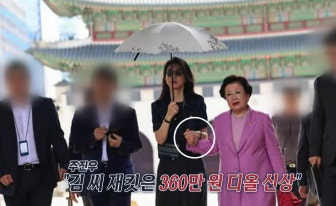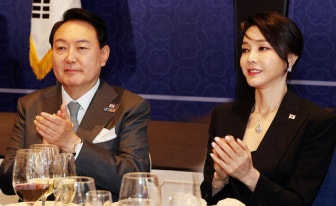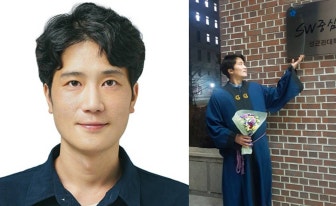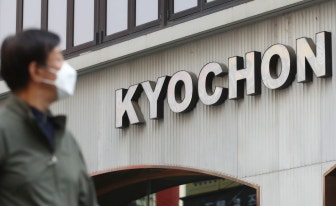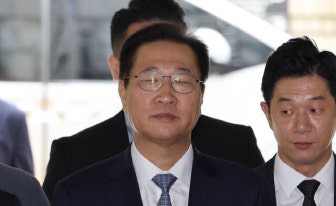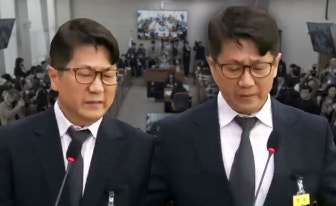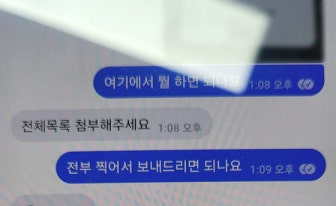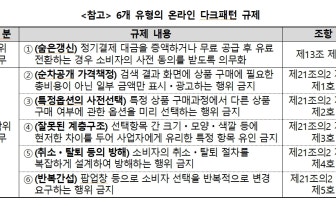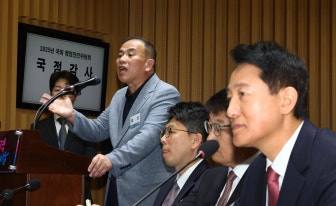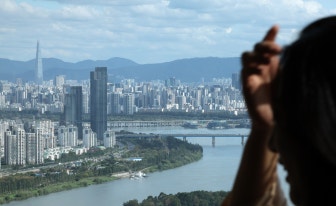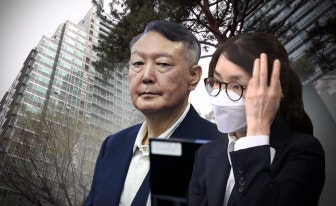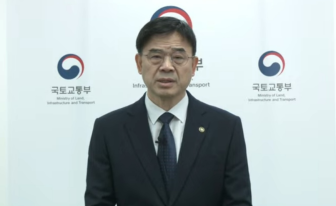North Korea fired a series of short-range ballistic missiles on Oct. 21, one week before U.S. President Donald Trump’s planned visit to Korea. The Joint Chiefs of Staff said the missiles were launched northeastward from Chunghwa County in North Hwanghae Province at around 8:10 a.m. and landed roughly 350 kilometers (217.5 miles) away in the country’s interior. It was the North’s first ballistic missile launch since the start of the Lee Jae Myung administration.
Analysts believe the launch demonstrates Pyongyang’s growing confidence in its missile technology. Test missiles still under development are typically fired toward the sea to minimize risk, but launching inland suggests the regime was testing a fully developed weapon. This indicates that the act was intended primarily as a political and diplomatic show of force.
The provocation appears aimed at the Asia-Pacific Economic Cooperation (APEC) summit scheduled to open on Oct. 31 in Gyeongju. Leaders from 21 Pacific nations — including Korea, the United States and Japan — will attend, along with prominent business figures such as Nvidia CEO Jensen Huang and SoftBank Chairman Masayoshi Son. For Pyongyang, such a high-profile international event offers an opportunity to draw attention to itself through provocation. The regime has a long history of disrupting major occasions, from the 1987 bombing of Korean Air Flight 858 before the Seoul Olympics to other attempts to sabotage international gatherings. Seoul’s security authorities must stay alert as the summit approaches.
APEC represents nations that together account for 37 percent of the global population, 51 percent of world trade and 61 percent of global GDP. By resorting to missile launches on the eve of the summit, North Korea risks further alienating itself from the very community of “normal” states it claims to seek recognition from.
Reports have also circulated that Trump may consider an informal meeting with North Korean leader Kim Jong-un during his visit. The two leaders have often described their personal relationship as positive, leaving open the possibility of a surprise encounter. The latest missile launch could be Pyongyang’s attempt to raise the stakes ahead of any dialogue and extract concessions from Washington.
If renewed dialogue between the United States and North Korea can eventually revive denuclearization and the peace process on the Korean Peninsula, it would be a welcome development. But Seoul must ensure it is not sidelined in the process. Close coordination between Korea and the United States is essential.
North Korea continues to insist that Washington must first acknowledge it as a nuclear power before any summit can take place. Trump has previously referred to Pyongyang as a “nuclear power,” raising concern that his unpredictability could lead to implicit recognition of North Korea’s nuclear status. Such a move could trigger a nuclear domino effect across East Asia, prompting Japan and Taiwan to pursue their own deterrent capabilities.
The Korean government must work closely with Washington to prevent any impulsive deal that legitimizes North Korea’s nuclear arsenal. On an issue so deeply tied to the peninsula’s future, Seoul cannot afford to remain a spectator.
APEC 일주일 앞두고 도발 나선 북한…고립만 자초할 뿐
이재명 정부 출범 이후 첫 탄도미사일 발사
몸값 높이기 심산…북·미 ‘즉흥 거래’ 경계를
북한이 도널드 트럼프 미국 대통령의 방한을 1주일 앞둔 어제 미사일 도발에 나섰다. 합동참모본부는 “북한이 21일 오전 8시10분쯤 황해북도 중화군에서 북동 방향으로 단거리탄도미사일(SRBM)로 추정되는 발사체 여러 발을 쐈다”고 밝혔다. 이재명 정부 들어 북한의 첫 탄도미사일 발사다. 미사일은 350㎞가량 떨어진 내륙에 탄착한 것으로 파악됐다. 신형 또는 개발 단계의 미사일이라면 실패에 대비해 해상으로 쏘는 것이 일반적일 텐데, 내륙으로 발사했다는 것은 완성형 미사일을 쏘았다는 방증이다. 그만큼 정치·외교적 무력시위의 성격이 짙다고 해석할 수 있다.
이번 발사는 오는 31일 경주에서 열리는 아시아·태평양경제협력체(APEC) 정상회의를 겨냥한 것으로 보인다. 이번 행사에는 한·미·일을 비롯해 태평양 21개국의 정상급 인사가 참석하고, 젠슨 황 미국 엔비디아 CEO, 손정의 일본 소프트뱅크 회장 등 글로벌 기업인들도 대거 방한한다. 북한으로선 이런 대형 국제행사에 미사일 도발로 ‘존재감’을 과시하고 싶은 유혹이 있었을 것이다. 과거에도 북한은 서울 아시안게임이나 올림픽 등을 앞두고 KAL 858기 폭파, 대회 방해 공작 등으로 행사를 흔들려고 시도했던 전력이 있다.
안보 당국은 앞으로 남은 기간 긴장의 끈을 늦추지 말아야 할 것이다. APEC은 세계 인구의 37%, 상품 교역량의 50.9%, 글로벌 국내총생산(GDP)의 61.3%(지난해 기준)를 차지하는 정상 국가들의 협의체다. 섣부른 도발은 정상 국가를 지향하는 북한에 고립을 자초하는 역풍만 부를 뿐이다.
트럼프 대통령이 방한 기간 중 김정은 국무위원장과의 회동을 추진 중이라는 이야기도 돌고 있다. 김 위원장과 트럼프는 기회 있을 때마다 “개인적으로 좋은 관계”라고 언급한 만큼 ‘깜짝 회동’ 가능성을 배제할 수 없다. 북한의 미사일 도발은 몸값을 최대한 높여 미국의 양보를 유도하려는 계산일 수 있다.
북·미 대화의 물꼬가 트여 북한 비핵화와 한반도 평화 프로세스가 가동된다면 바람직하다. 그러나 그 과정에서 한국이 배제되는 사태는 절대 피해야 한다. 그런 만큼 철저한 한·미 공조는 필수다. 북한은 자신들의 핵을 인정해야 미국과 정상회담을 할 수 있다는 고집을 굽히지 않고 있다. 트럼프는 취임 이후 북한을 ‘핵 국가(Nuclear Power)’라고 언급한 적이 있다.
트럼프가 자칫 북한의 핵 보유를 인정하는 방향으로 흐른다면 일본·대만 등 동아시아 전역의 핵무장 도미노가 펼쳐질 가능성마저 배제할 수 없다. 정부는 한·미 공조를 강화해 트럼프의 ‘즉흥적 거래’가 북핵을 인정하는 결과로 이어지지 않도록 철저히 관리해야 한다. 한반도의 운명과 직결된 문제에서 우리가 구경꾼이 돼선 안 된다.
This article was originally written in Korean and translated by a bilingual reporter with the help of generative AI tools. It was then edited by a native English-speaking editor. All AI-assisted translations are reviewed and refined by our newsroom.


















